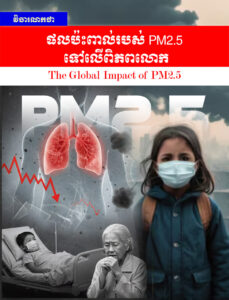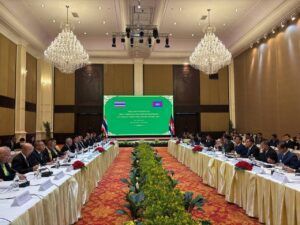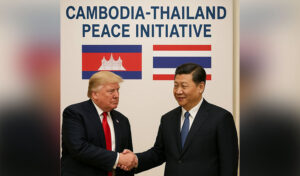Opinion: Cambodia’s Relentless War on Online Scams: From National Crisis to Global Responsibility
Khmer Times | Cambodia is now a determined and active force on the frontline of this global battle in the war against online scams. In an age where criminal syndicates use digital tools to exploit the vulnerable, launder illicit profits, and traffic innocent people across borders, the Royal Government of Cambodia (RGC), under the dynamic leadership of Prime Minister Samdech Thipadei Hun Manet, has launched an uncompromising and sustained campaign to eliminate this scourge from Cambodian soil.
This is not a temporary political gesture. It is a whole-of-government mobilization—coordinated, disciplined, and backed by the highest level of authority.
In February 2025, Prime Minister Hun Manet took the unprecedented step of personally chairing the National Commission to Combat Online Scams and Illegal Gambling. Composed of senior ministers, military leaders, national police, provincial governors, and cybersecurity experts, the Commission is empowered to direct law enforcement operations across the Kingdom. Its mandate includes the deployment of armed forces, the dismantling of scam compounds, the prosecution of syndicate leaders, and the rescue and rehabilitation of trafficking victims.
This crackdown is far from symbolic. It is operational, expanding, and unrelenting.
Just this month, Phnom Penh Governor Khuong Sreng, in alignment with the Prime Minister’s vision, launched a dedicated Anti-Scam Task Force at the capital level. The new task force serves as a model for localized enforcement—capable of acting swiftly on intelligence, rooting out criminal networks in urban environments, and coordinating closely with national efforts. The Prime Minister’s clear instruction is for all levels of government—national, municipal, and provincial—to act decisively, urgently, and transparently.
To date, over 18,000 illicit websites have been shut down, and dozens of scam compounds dismantled, resulting in hundreds of arrests and the rescue of more than 1,000 victims. No innocent person should ever be held hostage by technology-enabled slavery. Cambodia is committed to protecting survivors—through rescue, rehabilitation, and justice.
Yet enforcement alone is not enough. Cambodia’s counter-scam strategy rests on three foundational pillars:
1. Transparency and Accountability: Every raid must lead to justice. Cambodia is committed to publishing accurate data on arrests, rescues, and convictions to reassure the public and prove that these efforts are producing tangible results.

2. Protection of Victims: Scam victims—Cambodian and foreign—are not criminals; they are survivors. The RGC is working with embassies, NGOs, and international organizations to ensure humane treatment, proper documentation, medical care, and safe repatriation.
3. Regional and Global Cooperation: This is a transnational problem that no country can solve alone. Cambodia is strengthening its partnerships with ASEAN member states, Interpol, and countries such as the U.S., China, India, and Malaysia to exchange intelligence and dismantle criminal syndicates operating across borders.
At the heart of this strategy is a belief in the power of civic awareness. The RGC calls on all citizens to remain alert and report suspicious activity. Ministries and local governments are investing in digital literacy and public education campaigns, so Cambodians can recognize, resist, and report scams.
To those who still question Cambodia’s commitment, let the record speak. This Kingdom has chosen the hard path—one that demands political will, institutional integrity, and unflinching courage. We will not allow our territory to be hijacked by criminal interests. Cambodia is not the problem—it is now part of the solution.
We call on the international community not to judge Cambodia by its past challenges, but by its present actions and future vision. Our government has drawn a clear red line: online scam networks, human traffickers, and financial criminals are not welcome in Cambodia—and never will be again.







